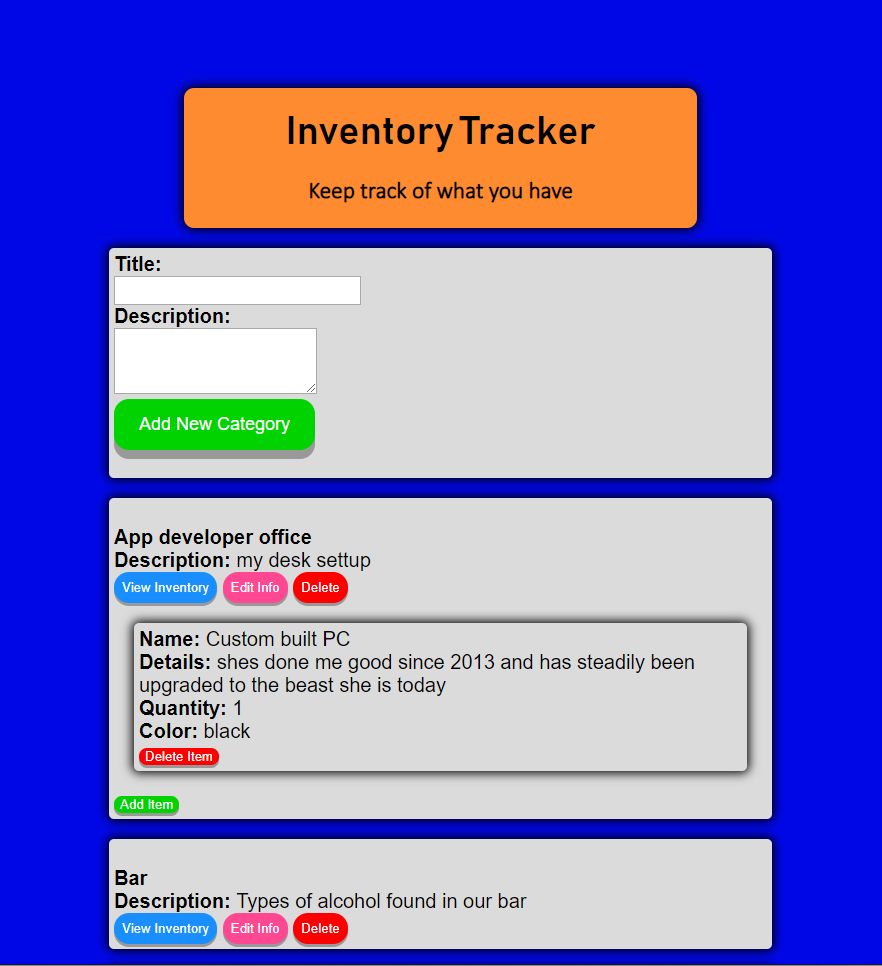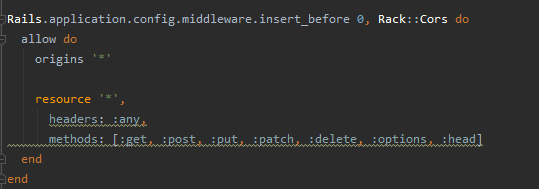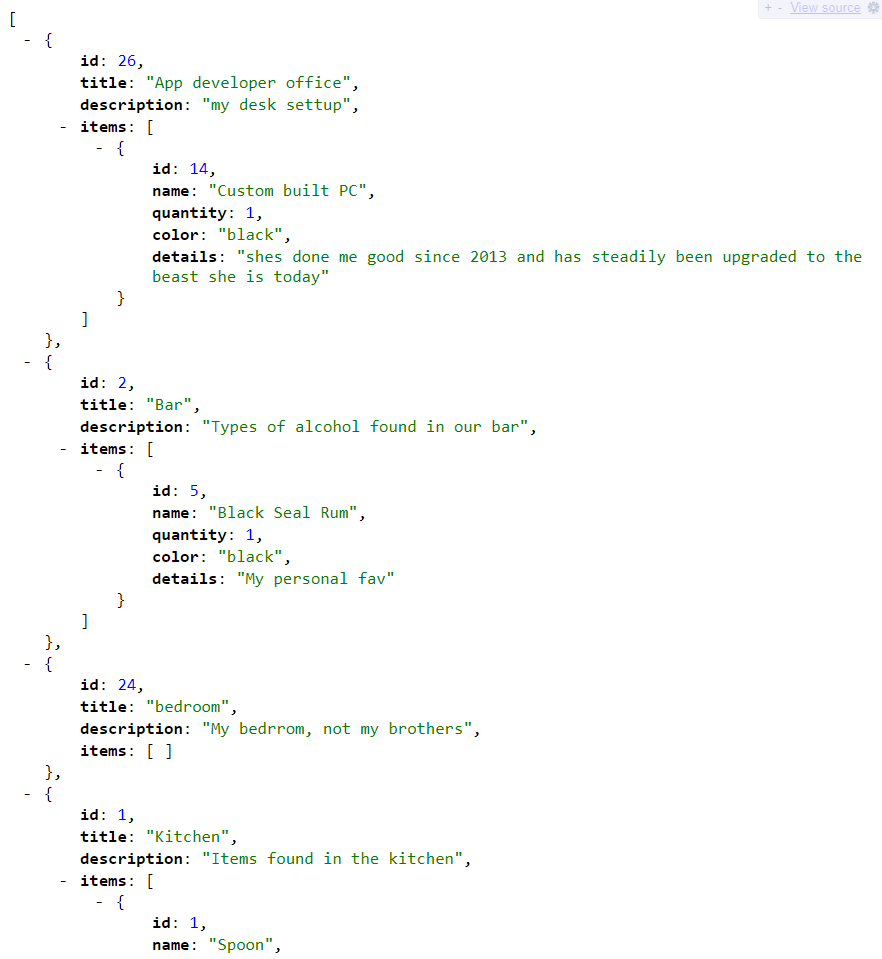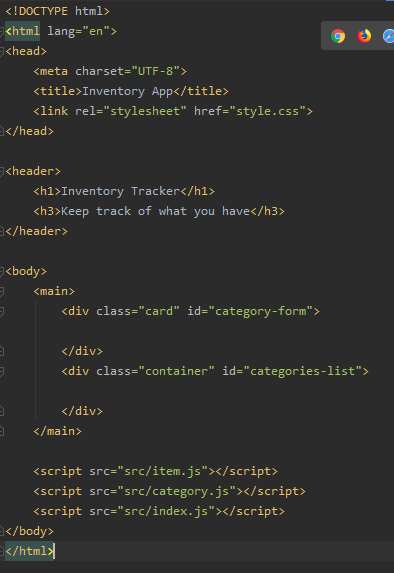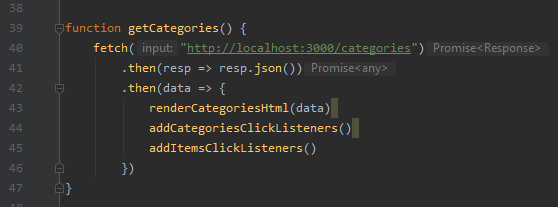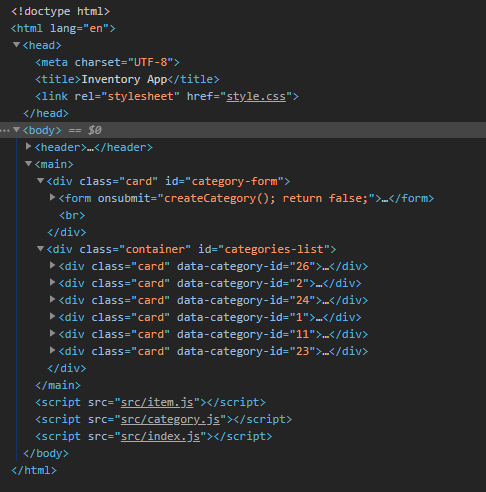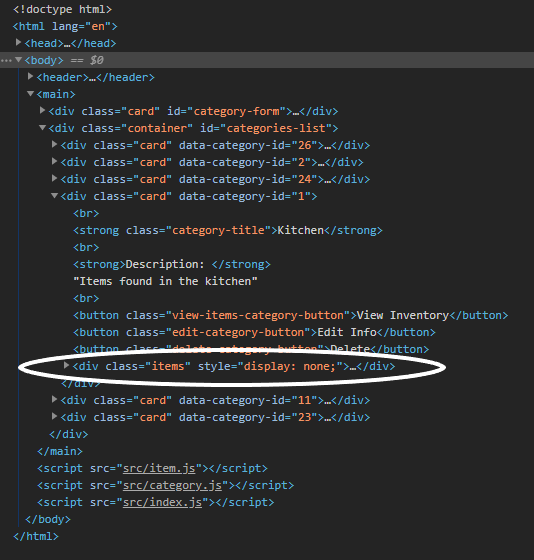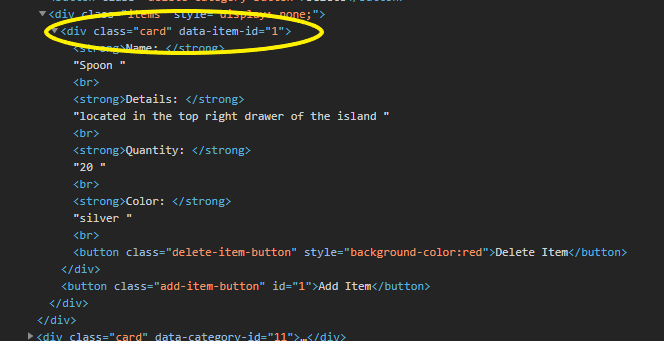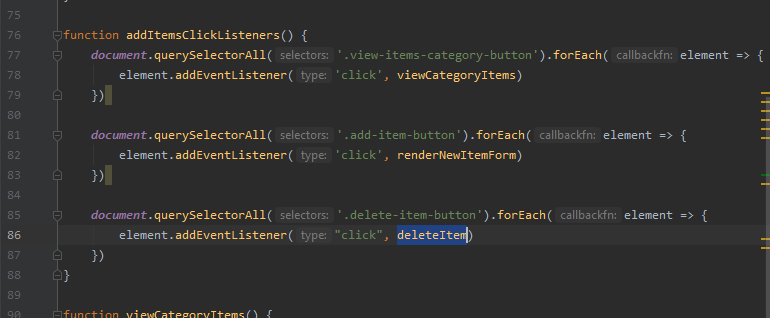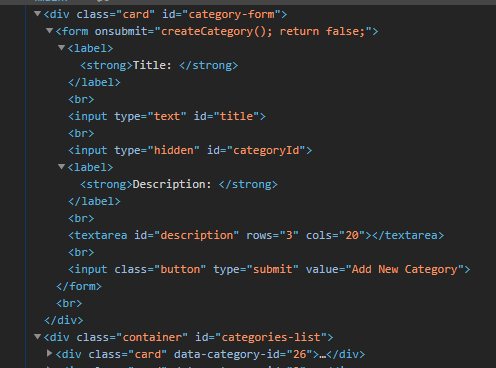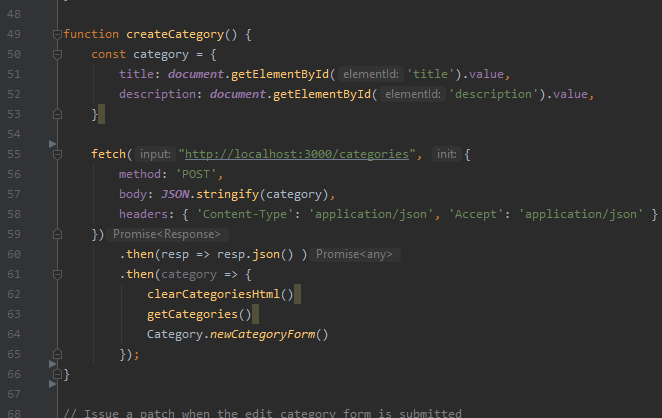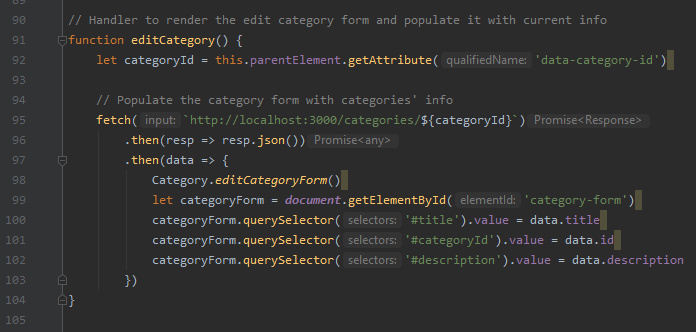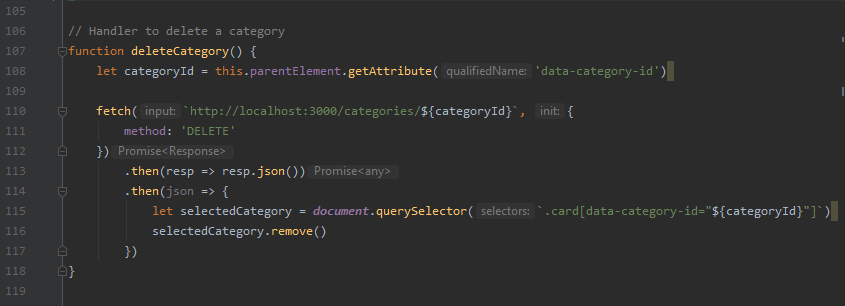I recognize this is a much different piece than what is normally on my blog. Take these lessons to heart in the understanding that even with a TBI, you too can strive to prosper and make better the lives of others. Through tenacity, hard work and a firm understanding of your limitations, you can STILL strive to reach for the stars.
Economic Enlightenment for the Prosperity of Nations
Poverty,
in terms of economic prosperity, in the world today is almost inexcusable with
the amount of resources, information and our ability as humans to share that
information. Yet, there are a plethora of countries in which their per capita
income and/or gross domestic product (GDP) have averaged below the poverty
line. This paper is inspired greatly by the book The Poverty of Nations, written by Wayne Grudem and will be taking
the same stance as its author in the effort to bring prosperity to the
destitute.
The
appropriate goal of the poor countries of the earth: raise the GDP of
impoverished nations. “…GDP is increased when a nation continually creates more
goods and services that have enough value to be sold in the marketplace”
(Grudem Poverty 48). GDP is the source of all monetary wealth received by a
country. If a nation’s GDP is low, their citizens will likely be living in
poverty. In nations like Afghanistan where there is very little export, minus oil
which only benefits the top 1%, The people are left to live off the little
offered to them by the land. This survival type of living only grants the bare
minimum to survive, if survival is even achievable. Without increasing their
GDP, those individuals will never economically prosper. In order for the GDP to
increase, the individual per capita income of a majority of the citizens will
need to increase. This means putting the citizens to work. Along with bringing
more income, work provides people with a sense of purpose, encouraging them to
work harder and increase the overall GDP of their country. The more GDP people
produce, the more per capita income they have. It’s an upward spiral towards
success.
In
contrast, there are certainly a few inappropriate goals. First, dependence on
donations from wealthier countries: “No poor nation in history has grown
wealthy by depending on donations from other nations” (Grudem Poverty 65). By
depending on help from other nations, the poor cannot produce their own wealth
and are limited to the generosity of the donators. Developmental aid dependency
is also assuming that those nations have legitimate, well-functioning, law
abiding, local and national elites. Most, if not all poor nations are being
snuffed out by the selfish elite who steal the donations for themselves. This
is a flawed understanding of the causes of poverty. Not having per capita
income isn’t the cause of poverty; it is a result of poverty. Foreign aid is
not only a poor (see what I did there) goal, it is even an underlying cause of
poverty. When corrupt governments receive more money, their unjust grip over
their citizens tightens and by keeping their own people in poverty, the elite
can steal even more donations and the downward spiral perpetuates. Because of
this, “’Earned success’ is more important than money” (Grudem Poverty 74).
Arthur C. Brooks, former professor of business and government policy at
Syracuse University said, “Earned success means the ability to create value
honestly – not by winning the lottery, not by inheriting a fortune, not by
picking up a welfare check. It doesn’t even mean making money itself. Earned
success is the creation of value in our lives or in the lives of others” (Brooks
71). Value is created by work, therefore, the best thing that developing
nations can do is work to build, innovate and create.
Earned success is imperative
to be a thriving nation. That being said, we can say that our second
inappropriate goal would be redistribution of wealth from rich to poor. The rich
of some nations abuse their government to gain wealth, especially communist
countries like Cuba and North Korea. In these nations, the disparity of “wealth
regarding housing, cars, shopping privileges at restricted stores, travel and
vacation, and other protections” is the biggest difference (Grudem Poverty 75).
A third failed goal is
dependence on natural resources. David S. Landes explains what getting huge
amounts of gold did to Spain in the mid-1500s:
Spain
became (stayed) poor because it had too much money. The nations that did the
work learned and kept good habits, while seeking new ways to do the job faster
and better. The Spanish, on the other hand, indulged their penchant for status,
leisure, and enjoyment… By the time the great bullion inflow had ended in the
mid-seventeenth century, the Spanish Crown was deep in debt… The country
entered upon a long decline. Reading this story, one might draw a moral: Easy
money is bad for you. It represents short-run gain that will be paid for in
immediate distortions and later regrets. (Landes 173)
Landes continues and links the Spanish
gold mistake to the modern Middle East where they rely too heavily on oil for
their GDP.
The
best comparison is with sixteenth- and seventeenth-century Spain, cursed by
east riches and led down the path of self-indulgence and laziness. So, with the
oil-rich… These countries simply haven’t developed an advanced economy. Like
the Spain of yesteryear, they’ve purchased the skills and services of others
rather than learn to do things for themselves. (Landes 408)
Each nation needs to both learn and work
for success, they cannot just buy the services of outside nations to do things
for them out of laziness, or they will be doomed to be forever in debt and
bondage the moment their natural resources are depleted. In observing countries
like Saudi Arabia, Nigeria and Iran, it is arduous to come to view abundant
natural resources as a blessing for developing nations. While resource wealth
can be used wisely, it gives birth to the temptation of easy money and snuffs
out industry: “The production of wealth from commercial enterprise born of risk
taking and sweat encourages healthy government institutions and begets further
wealth. The production of wealth from a limited number of holes in the ground,
owned or controlled by the government, begets rent seeking and corruption”
(Bernstein 289). In contrast, Norway is a fantastic example of a nation that
has governed its abundant oil reserves well: “Norway has high levels of
literacy, excellent elementary and secondary schools, clearly titled lands,
protected property rights, and a culture of hard work and frugality. With all
these factors, Norway has a very high per capita income (54,200)” (Grudem Poverty
81). Also, Norway didn’t try to conquer the world by spending all of its wealth
from natural resources on a fleet of the most state-of-the-art war ships
available at the time.
A
fifth unhelpful goal is casting blame on elements outside of the nation. A
victim mentality may be taken by a country that simply doesn’t warrant it.
Large banks and corporations, rich nations and colonialists, or even the world
economic system are not the primary culprits, albeit they are secondary
offenders. Colonialism brought many positive and negative aspects to colonies
that later became independent. Roads, railways, electricity, plumbing and other
trademarks of an advanced society, were introduced by most of the colonizers.
Rich nations may be giving poorer countries a bad deal and tricking them into
debt for a profit; however, this would be the fault of the poor nation for
accepting the deal and not seeking the furtherment of its own industry over the
easy way out. Large banks and corporations are also not the cause of poverty:
Are
these nations poor because the cost of servicing these loans is too high? The
main point to remember here is that these loans represent assets that were
transferred to the poor countries, not taken from them, and almost all of the
loans were made at very favorable rates, far below the market rates for loans
in ordinary international financial markets. The loans were presumably made in
order to finance projects that would be profitable and would pay a substantial
rate of return. (Grudem Poverty 90)
There is only one instance where an outside
factor might be the primary cause of poverty in a country, when a nation is
conquered and oppressed. An example of this cause of poverty was when Israel was
besieged by the Midianites who are from the land now known as Palestine. The Bible in terms of its historical
account, accurately describes what happened to ancient Israel:
“The
people of Israel did what was evil in the sight of the Lord, and the Lord gave
them into the hand of Midian seven years. And the hand of Midian overpowered
Israel, and because of Midian the people of Israel made for themselves the dens
that are in the mountains and the caves and strongholds. For whenever the
Israelites planted crops, the Midianites and Amalekites and the people of the
East would come up against them. They would encamp against them and devour the
produce of the land, as far as Gaza, and leave no sustenance in Israel” (Judges
6:1-4).
Only when a nation oppresses another, like
in the case of the former Soviet Union, following the second Great War, turning
the surrounding nations into its slaves while the rest of Europe flourished,
can a country rightly blame its impoverished state on something other than
itself.
The
query that needs to be answered if a nation wishes to be abundantly prosperous
would be: what method brings the highest level of desire to make that method
succeed and get people to think about how they can bring more/ new services and
value? There are several different economic systems in the world today. Nations
that follow communism are doomed to fail from the sheer lack of understanding
human nature. Looking back to the USSR, China and Cuba, every example was taken
over by an absolute ruler who selfishly took from everyone to have a lavish
lifestyle. The USSR and China abandoned many of the core policies of communism
for the abundance offered by a free market in capitalism. While using a
successful economic system can bring a nation out of poverty, “we need to
emphasize that the right kind of economic system does not by itself bring a
nation out of poverty” (Grudem Poverty 107).
The
first impoverishing economic system is hunting and gathering. While hunting and
gathering can keep people going for even thousands of years, it will not bring
prosperity. Some countries in Africa use this system and we can see where it
has gotten them. It goes without saying that this form of economy will allow
survival, but not the abundant prosperity required to bring a nation from being
a 3rd world land to a 1st world society. Just surviving
is not a profitable venture.
The
next economic meltdown of a system is subsistence farming. This is when each
individual family is responsible for producing enough food to sustain
themselves. “In Zimbabwe and other sub-Saharan countries, subsistence farming depends
on natural rainfall, making agricultural activities extremely sensitive to
environmental changes [3,4]” (Mubaiwa). While this can prevent starvation, it
will not allow a nation to thrive, and we can look to Zimbabwe as a prime example.
Nations that practice this form of economy often become subject to family
related wars. Raiding and genocide have been influenced heavily by this type of
economy. Thus, these people groups become poor both physically and morally.
Next
in the line of atrocious economic ideas is tribal ownership. Tribal ownership
is when a tribe or community of people own all of the land rather than the
singleton. At first mention it doesn’t sound too bad: everyone owns everything
together. But once human nature is accounted for: “The lack of private
ownership, discussed in the next chapter, is the main problem. When no
particular owner has responsibility for property, there is little individual
incentive to improve or steward it. Simply put, people need to be able to own
things” (Grudem p.114). People are lazy. If your neighbor won’t pick up your
lawn while it’s yours, they probably won’t if it isn’t theirs too.
Another
economic system that produces more impoverished people than healthy is
mercantilism. This form of economy has one primary goal, which is amassing the
wealth of the government. Adam Smith says in his book An Inquiry into the Nature and Causes of the Wealth of Nations,
Consumption
is the sole purpose of all production; and the interest of the producer ought
to be attended to, only so far as it may be necessary for promoting that of the
consumer… But in the mercantile system, the interest of the consumer is almost
constantly sacrificed to that of the producer; and it seems to consider
production, and not consumption, as the ultimate end and object of all industry
and commerce. (274)
Since all of the priority is given to the
producer, the health, safety and overall wellbeing of the consumer is
neglected, leaving the consumers dependent on the producers yet in a constant
state of poverty, lest they also be producers.
The
next in my list of bad economic systems is socialism/ communism. Socialism is
when the government owns all means of production and as such, distributes it
solely at its own discretion. With communism, Marx claimed that the worker was
being cheated and that anything produced can be weighed in terms of labor hours,
in other words, the amount of labor put into it. This mentality was used to
abolish ownership of anything. A company couldn’t just own a building and rent
it out for profit since that is against the value of labor concept. What
neither of these seem to understand is that value is not determined by the
number of hours labored but rather, it is determined by the inclination of the
consumer. The biggest problem that communism and socialism face, however, is
that if everyone is provided for equally and no one gets more for working
harder, there is no incentive to innovate or even do any more than what is
required by them. They wouldn’t get to experience the fruits of their extra
labor. Communist governments also killed upwards of 100 million people in the
twentieth century with China and the U.S.S.R being the main sources of death to
their own people, having 65 million and 20 million killings respectively. In
the former Soviet Union, their preferred WMD (Weapon of Mass Death) used during
the Great Purge was the Gulag, a type of concentration camp which killed over a
million people in a year. Anyone arrested was sent to a Gulag and all were
subject to possible death, the most common of which is death by bullet: “’Between
August 1937 and November 1938, about 1-1/2 million people [in the USSR] were
arrested and perhaps 700,000 of them were shot’” (Weir). It is apparent that
when a government is given too much power over its people’s lives, neither the
government, and especially not the people are able to prosper.
Lastly,
and most prevalent in our own culture, the welfare state: when a nation
provides “extensive benefits for its citizens from cradle to grave” (Grudem Poverty
126). This type of economic system, where the government is responsible for
fulfilling, not simply protecting, human rights to things such as education,
health care, jobs, plenty of time off, retiring early enough to enjoy old age
and housing, has produced a cesspool of entitled whiners who encourage
laziness. A prime example is England. During the enlightenment, free thinking
and innovation was highly encouraged. Thanks to that era of great advancement
and prosperity, the U.K became incredibly wealthy. With children being born
into and living in that wealth all their lives, they started believing it was
their government’s responsibility to take care of the people and let them live
their wealthy lifestyles without work and innovation. Today, most of Europe is
a massive welfare state as a result of that prosperity. John Mauldin and Jonathan
Tepper, financial experts and author/ co-author of the book Endgame: The End of the Debt Supercycle and
How it Changes Everything, expresses their concern with Europe’s debt
crisis as a result of its welfare system:
We
are coming to the end of a 60-year debt supercycle. Not just consumers but
banks borrowed (and not just in the United States but all over the developed
world) like there was no tomorrow… European banks still remain highly
leveraged… why is Greece important? Because so much of their debt is on the
books of European banks hundreds of billions of dollars… Except, now that Greek
debt is risky. Today, there is some kind of bailout for Greece. But that is
just a Band-Aid on a very serious wound. The crisis will not go away. It will
come back, unless the Greeks willingly go into their own great depression by
slashing their spending and raising taxes to a level that no one in the united
states could even contemplate. What is being demanded of them is really bad for
them, but they did it to themselves… But those European banks? When that debt
goes bad, and it will, they will react to each other just like they did in
2008. Trust will evaporate… there are other countries in Europe, like Spain and
Portugal that are almost as bad… (40-42)
These overwhelming amounts of debt built
by government spending beyond its means will eventually lead to a massive
increase in borrowing costs, rationing the available credit and that same
limited credit being onerous for the average Joe to acquire in the first place.
Greece, Spain and Portugal are singled out for their inability to pay their
ever-stacking mountains of debt, but they are not alone.
If
even the most developed countries are on the verge of collapse under the
welfare state, then what was the economic system that brought them to such
prosperity in the first place? The most successful, tested and proven economic
system, which brought all prosperity in the entire free world, is the
free-market system. Since all of the aforementioned economic systems have
either failed or are on the verge of it, trusting in the one system which has
proven to provide human prosperity on the greatest level is a no brainer. So,
what is the free-market system?
The
free market system is a wonderful, God-given process in human societies through
which the goods and services that are produced by the society (supply)
continually adjust to exactly match the goods and services that are wanted by
society (demand) at each period of time, and through which the society assigns
a measurable value to each good and service at each period of time, entirely through
the free choices of every individual person in the society rather than through
government control. (But this process needs some government regulation to
prevent wrongdoing such as theft, fraud and breaking of contracts). (Grudem Politics
276)
The parallels between the economic freedom
and an abundance of wealth in a society, even in today’s world, is apparent.
The nations boasting the best per capita income ratios, also have the most
economic freedoms worldwide. In 1776, Adam Smith explained why having market
freedom begets economic plenteousness:
That
security which the laws in Great Britain give to every man that he shall enjoy
the fruits of his own labor; is alone sufficient to make any country flourish…
the natural effort of every individual to better his own condition, when
suffered to exert itself with freedom and security, is so powerful a principal,
that it is alone, and without any assistance… capable of carrying on the
society to wealth and prosperity. (Smith 581)
According to Wayne Grudem in his book The Poverty of Nations (134), in any
free-market system, the rule of law is a necessity. Rules that protect economic
freedom for all people within the nation must be in place. Protection from
fraud, deceit, theft and even coercion need to be both established and enforced.
The word free in the free market
doesn’t just mean people can do whatever they want. Anarchy is not a solution
to any economic problem. The very notion of a free market needs to be
protected. That notion becomes infringed upon the moment free exchanges, agreed
on by each party, are warped by stealing, cheating or outright lying to others,
or when some people are not given the information required to make an informed
decision.
Some
may object to a free market system based on the idea that all economies are
mixed with private and government property and power. This mistakenly assumes
that all economic systems are the same by saying they are all mixed with
different parts of each type of system melded together. If a free market nation
has a portion of the produce being managed by the government, does that make
them the same as socialism or communism? Absolutely not. The majority of
choices made regarding production and consumption are still left up to the
citizens and individuals within the country, not the government. The government
simply plays a supporting role by protecting the process of production and
consumption. As previously mentioned, the government does own a portion of
business in the system; however, this is more of an anomaly, not in any way a
decree. An example would be the United States government maintaining partial
ownership of the postal service. By owning a part of the postal service, the
government is able to ensure the safety of packages and mail, protecting the
freedoms of businesses which require the use of that service. While the
government may own a part of the business, their role is one of protecting
citizen’s rights, not making a profit. Look no further than the debt to profit
ratio of USPS, UPS and Fed Ex in the United States for an example.
The
key to a successful free market is a proper foundation of laws which protect
freedoms and the virtues required to establish those laws. Large corporations
may be routinely scrutinized for taking advantage of the average Joe, but if
they are not forcing (robbers), deceiving (loan sharks), or withholding
information (insurance companies), then their rights should be protected just
as any citizen. Just because someone has more money, it doesn’t mean they got
it unjustly. In a free market, no one is forced to work, and no one is forced
to accept any product, service or offer. The power is in the hands of the
consumer. If a product doesn’t beat its competition, then the consumer will buy
a better product elsewhere. This balance of power allows people to fight and
make the better product or provide the better service. It encourages work to
stay ahead and gives the possibility for any individual to climb the ladder and
become successful. What if any company becomes too large and monopolizes a
business? This is where the government is meant to step in and protect the
freedoms of people who want to start their own company in any given field
(minus the production of chemical weapons, which was banned by the CWC after
the inhumane melting off of faces in WWI). Laws that prevent monopolies are
already in place in the United States; however, they need to be modernized and
fill in the loop holes in areas such as car insurance and health insurance. For
the purpose of developing countries climbing out of the poverty swamp,
education, hard work, freedom of choice and a law protecting those freedoms
will be more than enough to carry them to success.
In
order for a free market to take root, the freedoms of the producer, as well as
the consumer need to be well established and guarded. The next question
developing nations should be asking is, “What freedoms?” In order for the
appropriate freedoms to be granted, “A government must be one that uses it’s
power to the benefit of the people as a whole, not just for themselves and
their friends” (Grudem Poverty 259). Following is a list of required freedoms
that such a government will need to protect.
The
first freedom required for a free market to work is the freedom to own
property. If an individual or group wants to produce or sell a product, provide
a service or make an offer of exchange, they need to first have their own place
of business. Without this freedom, people will be forced to do business a
certain way to comply with the regulations placed by the government to let them
use the facilities or greatly limit the advancement of business as a whole
(selling on the streets). People need the ability to sell, purchase and own
their own land or place of business without unnecessary blockages by the
authorities.
Second,
the freedom of exchange. This should go without saying: a free market is
entirely dependent on the freedom of the people to buy and sell stuff in
exchange. If a person can’t buy, and material goods are issued by the
government like in communism, then there can be no free market. On the reverse,
if a person can’t sell, there would be nobody to use your freedom to buy from.
Third,
the freedom of transit and transport. In other words, a person needs to be able
to transport their goods or travel somewhere to buy something only sold in a
certain location. An example of a very well-off business using transport is
Georgia Peaches. Here in Minnesota, I can go to a grocery store and pick up a
box of Georgia Peaches (GP) only grown in Georgia. Without this freedom, the
products sold would be limited to selling in only one location. If GP could
only sell peaches in Georgia, they would not be the multi-million-dollar
company they are today. This freedom of transport is a necessity for a business
to go from just getting by to a household name. On the reverse, the individual
needs the right to travel anywhere within the country. With this freedom,
consumers can take vacations to exotic places, a thing you cannot bring home
with you to Minnesota. This also allows for the business of souvenirs to
flourish. A person might get a shark tooth necklace from Florida, BECAUSE it’s
from Florida, for a significant markup than getting one from home.
Fourth,
the freedom of relocation. If a person can move anywhere within the nation,
then they can barter for a better job. This causes many employers to improve
life/ status for their employees in order to keep them from going elsewhere,
which in turn incentivizes those employees to work harder to keep that job. In
nations which use slavery as a means for their economic system, this freedom is
not possible, making it impossible to have a true free market economy while
also endorsing slavery.
Fifth, the freedom to export and import
from other nations. The more people involved in the exchange of value, the more
potential for juxtapositionleverage.
A prime example of a country whose economy failed because of the neglect of
this freedom is 16th century Japan. Niall Ferguson, a professor of
history at Harvard University and author of the book Civilization: The West and The Rest, says in his book,
While the English aggressively turned outwards… the
Japanese took the opposite path, with the Tokugawa shogunate’s policy of strict
seclusion (sakoku) after 1640. All forms of contact with the outside world were
proscribed/ as a result. Japan missed out entirely on the benefits associated
with a rapidly rising level of global trade and migration. The results were striking.
By the late eighteenth century, more than 28 percent of the English farmworkers
diet consisted of animal products; his Japanese counterpart lived on a
monotonous intake, 95 percent cereals, mostly rice. This nutritional divergence
explains the marked gap in stature that developed after 1600. The average
height of English convicts in the eighteenth century was 5 feet 7 inches. The
average height of Japanese soldiers was 5 feet 2.5 inches. (45)
With the current average height of Japanese men at
5’ 7” and the free market society they live in today, it is safe to conclude
that the 17th and 18th centuries of isolation in Japan
were a cause of their smaller-than-life stature. Japan is also a fantastic
example of what happens to a nation when they go from an impoverished state to
one flourishing with the free market system, implementing all of the freedoms
listed in this paper.
The
sixth freedom is the ability to start a business. Any country with the goal of
increasing their production of goods and services will need to rely heavily on
businesses. Businesses sell an overwhelming majority of goods across the world,
as well as pay the bulk of wages paid to workers, not governments, not
charities, not churches, but businesses. Since the world’s economy relies so
heavily on big and small businesses alike, the freedom of people to start new
businesses and continue to run them is imperative to the health of any striving
economy. This freedom must also be applied to everyone. While many won’t be able
to succeed with their business, the harder working and more desired businesses
will succeed based on the level of support they receive from the consumers.
This makes companies work hard to please the consumer and when the consumer is
not pleased, the success of the business or company will waver. This incentive
for business owners to constantly improve their products for the consumers to
willfully buy the products offered and the success it gives birth to is
apparent in today’s world. This is a multifaceted factor however and requires
policing to protect citizen’s rights. The NY Post reported in 2004 about the
SUV rollover crisis:
The Explorer Sport Trac two-wheel drive was slammed
as the vehicle most prone to rollover, with a likelihood of 34.8 percent. It
was given only two stars out of a possible five. Another Explorer, the
four-door, two-wheel drive version, was tied for second worst among
the SUVs studied. It was given three stars and a 28.3 percent chance
of flipping – tied with the Mercury Mountaineer, GMC Yukon and the
Chevy Tahoe. Safety experts concluded years ago that SUVs are more
prone to roll than passenger vehicles in single-car crashes.
This crisis was something that Ford knew about as
well as the consumer, yet they were still one of the most purchased vehicles.
In these instances, it is perfectly within the government’s jurisdiction to
protect the citizen’s right to life and enforce regulations accordingly on the
production of the SUVs. Thanks to the relationship the U.S government has with
its citizens, one of protecting their rights and freedoms, Ford motors went on
to greatly improve the safety of their SUVs and pickup trucks, after over a
decade of legal disputes and botched tests regarding the stability of the
vehicles during moderate-speed turns that is. Bottom line, freedom to start and
own a business is imperative to a free market.
The
seventh necessary freedom is freedom from excessive government control. While
some government intervention is important for the protection of the citizens,
too much interference will lead to a major loss of morale for businesses and
lead to a collapse of the system. One way that a government can be too involved
in businesses is taxation. While some taxation is good and will help the
government protect the rights and safety of business owners, too much will
cause people to give up on the idea of having a business. The green new deal is
an example of a government that is far too involved in the free market process:
“Rep. Alexandria Ocasio-Cortez, D-N.Y., floated a 60 to 70 percent tax rate on
the richest Americans in an interview with CBS News’s ‘60 Minutes’ that was
released Friday, arguing higher taxes on multimillionaires could help pay for
the ‘Green New Deal’ she and other left-wing members of the Democrat Party have
proposed” (Stein). This much of a tax rate on anyone will prevent them from
wanting to succeed past a certain threshold, limiting the amount of prosperity
that a nation can experience. If all citizens are allotted a chance to become
wealthier than they already are, it encourages them to do more to benefit the
economy by benefiting themselves. By having a reasonable % tax rate that
doesn’t discourage success or overwhelm the tax payer, the government income
will go up as the business income does. Value can be created. There is not a
limited amount of value that can go around. The more a business can create
value, the more value there is to go around. This truth is the reason for the
success of the wealthiest nations today. When taxation exceeds a certain point,
it limits the success of the entire economy and jealousy of the rich by the
less well-off isn’t a good enough reason to oppress any businesses. Excessive
government interference can extend beyond taxation as well; however, it is the
most common form of government overreach in a free-market economy. One example
of such an overreach is the Roman empire:
Indeed, it is not too much to say that oppressive
taxation eventually led to the fall of Rome to the barbarians. How
so? In the early Republic, the small citizen farmer served-without pay–in the
military as a patriotic duty. He was the best fighting man in the world. But in
the last century of the empire uncontrolled tax evasion became rampant and the
quality of the legions changed. The frontier garrisons were composed of overpaid
misfits from Italy and self-seeking barbarians. Conscription was used as a tax
dodge. The city of Rome fell because it could not defend itself against a
third-class military force. (Adams)
In a free market economy, the government truly must
be by the people for the people and not by the rich for their own selfishness.
This requires the government to be hands off when it comes to the people’s
individual freedom, so long as that freedom is not impeding the rights of
others.
The
eighth freedom is the exemption from demands for bribes. A common flaw of
humanity, as you see repeatedly in this paper, is selfishness. Poor nations
ruled by governments with too much power and not enough freedom of the people
commonly practice bribes for civil services. The economic success of the modern
world is largely a product of Judea-Christian values and teachings. While all
of the surrounding countries practiced bribery and abandoned the rule of law in
favor of the rich, ancient Israel taught: “You shall not pervert justice. You
shall not show partiality, and you shall not accept a bribe, for a bribe blinds
the eyes of the wise and subverts the cause of the righteous. Justice, and only
justice, you shall follow, that you may live and inherit the land that the Lord
your God is giving you” (Deuteronomy 16:19-20), “And you shall take no bribe,
for a bribe blinds the clear sighted and subverts the cause of those who are in
the right” (Exodus 23:8). When a bribe is accepted, it is in favor of someone who
committed a wrong against either another individual or against society itself.
This kind of selfishness that goes over the rights of the community causes the
public to lose confidence in the authorities’ ability to govern and leads to
chaos and anarchy.
There
are several other freedoms which are important for a free market society to
succeed. I will list the remaining freedoms without going into depth for each
one of them as this paper would be way too long. 9.) Freedom for a person to
work in any job, 10.) Freedom of reward to workers, 11.) Employers right to
hire and fire, 12.) Right of management to hire and promote based on merit, 13.)
Freedom of the use of energy, 14.) Change and modernization, 15.) Freedom to
seek and acquire information and education, 16.) All people to be educated, 17.)
Freedom of men and women, any ethnicity, race or religious belief, 18.) Freedom
to advance social status, 19.) Freedom to peruse wealth legally, and 20.)
Freedom of religion. These freedoms are named specifically for their imperative
nature and the dependency any free market has on them.
If these goals, values and policies are upheld, as well as the refutation of the opposing goals, values and policies, any impoverished nation can bring itself out of a state of poverty. The real challenge after that is maintaining its prosperity and placing policies which block the tendency to backslide the way the modern west has backslidden to the pre-enlightenment period, a period where policy was and is now decided based on feelings rather than reason. The goal of continuous creation of value rather than being robin hood is how a poor society might have the chance of growing rather than stagnating progress or the reduction of products of value. While many may think that the separation of church and state is paramount and unwavering, one of the most impactful reasons for the prosperity of any prosperous nation today is Christianity. A proper respect for the teachings which lead to the prosperity of nations like the United States, England and virtually every other prosperous nation is vital. As such, these goals, values, policies and even teachings should all be at the forefront of every nation striving for greatness.
Works Cited
“SUV ROLL CALL – EXPLORER GETS WORST GOV’T
RATING.” New York Post [New York, NY], 10 Aug. 2004, p.
27. Opposing Viewpoints in Context, http://link.galegroup.com/apps/doc/A120398572/OVIC?u=mnastcltech&sid=OVIC&xid=7fdd8f29.
Accessed 28 Apr. 2019.
Adams, Charles. “Beware the Ides of April: high
taxes – and the decline and fall of practically everybody.” Policy
Review, no. 68, 1994, p. 48+. Opposing Viewpoints in Context, http://link.galegroup.com/apps/doc/A15331736/OVIC?u=mnastcltech&sid=OVIC&xid=d1de62da.
Accessed 14 May 2019.
Bernstein, William J. The Birth of Plenty: How
the Prosperity of the Modern World Was Created. McGraw-Hill Professional,
2010.
Brady, David. “The welfare state and relative
poverty in rich western democracies, 1967-1997 *.” Social Forces,
vol. 83, no. 4, 2005, p. 1329+. Opposing Viewpoints in Context, http://link.galegroup.com/apps/doc/A136454659/OVIC?u=mnastcltech&sid=OVIC&xid=55582844.
Accessed 8 Apr. 2019.
Brooks, Arthur C. The Battle: How the Fight
between Free Enterprise and Big Government Will Shape Americas Future.
Basic Books, 2011.
Ferguson, Niall. CIVILIZATION: The West and
the Rest. PENGUIN BOOKS, 2018.
Grudem, Wayne A. The Poverty of Nations: A
Sustainable Solution. Crossway, 2013.
—. Politics
According to the Bible: A Comprehensive Resource for Understanding Modern
Political Issues in Light of Scripture. Zondervan, 2010.
Holy Bible.
Holman Bible Publishers, 2011.
Kenworthy, Lane. “Do social-welfare policies
reduce poverty? A cross-national assessment.” Social Forces,
vol. 77, no. 3, 1999, p. 1119+. Opposing Viewpoints in Context, http://link.galegroup.com/apps/doc/A54576527/OVIC?u=mnastcltech&sid=OVIC&xid=cd4acedc.
Accessed 10 Apr. 2019.
Landes, David S.,
The Wealth and Poverty of Nations: Why Some Are So Rich and Some So Poor,
W. W. Norton, 1999
Mauldin, John and Tepper, Jonathan. Endgame: The
End of the Debt Supercycle and How It Changes Everything. John Wiley &
Sons, 2014.
Mubaiwa, Juliet, et al. “Utilization of bambara
groundnut (Vigna subterranea (L.) Verdc.) for sustainable food and nutrition
security in semi-arid regions of Zimbabwe.” PLoS ONE, vol. 13,
no. 10, 2018, p. e0204817. Opposing Viewpoints in Context, http://link.galegroup.com/apps/doc/A557683687/OVIC?u=mnastcltech&sid=OVIC&xid=16212eb5.
Accessed 23 Apr. 2019.
Smith, Adam, and Edwin Cannan. An Inquiry into
the Nature and Causes of the Wealth of Nations the Wealth of Nations.
Modern Library, 1994.
Stein, Jeff. “Ocasio-Cortez wants higher taxes on
very rich Americans. Here’s how much money that could raise.” Washington
Post, 5 Jan. 2019. Opposing Viewpoints in Context, http://link.galegroup.com/apps/doc/A568388738/OVIC?u=mnastcltech&sid=OVIC&xid=df9ac1a3.
Accessed 28 Apr. 2019.
Weir, Fred. “In Russia, a grass-roots bid to
expose Stalin’s ‘Great Terror’.” Christian Science Monitor, 12
Feb. 2018. Opposing Viewpoints in Context, http://link.galegroup.com/apps/doc/A527316260/OVIC?u=mnastcltech&sid=OVIC&xid=7d752e35.
Accessed 25 Apr. 2019.


